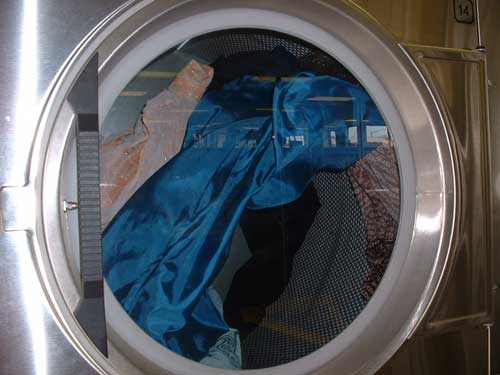Site Prices Update
Last Updated28th June 2022
All calculations on this site are based on current fuel prices, they are checked regularly and calculations are automatically updated.
The costs calculated based on these fuel prices should be regarded as 'good estimates', given that fuel prices vary in different parts of the county and at different time of the year.
The calculations also have different levels of accuracy depending on the nature of the calculation. For example calculating the energy use of a known power output TV is very easy compared to calculating the effect on energy savings when insulating a cavity wall.
Site Calculations
Set Your Own Prices
User PricesFor several of the fuel prices on this site you can now set your own prices and all the calculations on the site will adjust accordingly.
Set Prices
At Confused About Energy we aim to provide practical, impartial advice on all aspects of energy usage, climate change and ways to save money on energy bills.
All calculations on this site are based on current fuel prices they are checked regularly are automatically updated and were last changed on:-
28th June 2022
The costs calculated based on these fuel prices should be regarded as 'good estimates', given that fuel prices vary in different parts of the county and at different time of the year.
The calculations also have different levels of accuracy depending on the nature of the calculation. For example calculating the energy use of a known power output TV is very easy compared to calculating the effect on energy savings when insulating a cavity wall.
Site Calculations
| Electricity | £0.271 per unit (1 kWh) |
| Economy Electricity | £0.094 per unit (1 kWh) |
| Gas | £0.072 per unit (1 kWh) |
| Domestic LPG | £0.122 per unit (1 kWh) |
| Heating Oil | £0.104 per unit (1 kWh) |
| UK Grid CO2 Emissions | 0.233 kg per kWh used |
The main units used in this site are in the table below, For a complete explanation of power and energy Read More.
| Unit | Name | Detail |
|---|---|---|
| W | Watt | Unit of Power |
| kW | Kilowatt | 1000 watts |
| kWh | Kilowatt hour | Measure of Energy |
| L | Litre | Measure of Volume |
Please use twitter to ask a question Message @@EnergyThinking
Drying your clothes in a tumble dryer can be expensive as they consume large amounts of energy. The EU energy label for tumble dryers is calculated using the cotton drying cycle with a maximum load. Products are rated A – G according to the energy required per kilogramme of washing.
There are two different types of tumble dryer: a vented dryer and a condenser dryer (which needs no venting) and each has its own energy rating scale. Condenser dryers are slightly more expensive to run that vented dryers; have a look at the table, the exact numbers depend on your machines exact energy consumption and the size of load.
* A typical standard vented tumble dryer uses 2.50 kWh per cycle, based on an average load capacity of 4.75 kg of dry laundry, so the weight when you get it out of the dryer! This will cost
£0.678
(0.6kg), The number in brackets is the amount of CO2 this emits.
Cheaper tumble dryers are B or C rated; there are also A rated A+ , A++ and A+++ machines available. An A rated machine would save a lot of money, take a look at the table, but they cost much more to buy so this needs to be factored into your calculation for whether it is worth the investment.
| Type | Single Use * (Carbon Dioxide Emissions) |
150 Uses each Year (Carbon Dioxide Emissions) |
| Condenser Dryer | £1.22 (1kg) |
£182.925 (157.3kg) |
| Vented Dryer C Rated | £0.678 (0.6kg) |
£101.625 (87.4kg) |
| Vented Dryer A Rated | £0.474 (0.4kg) |
£71.138 (61.2kg) |
If you do use a tumble dryer then there are big cost savings you can make if you minimise the amount you use your machine.
Energy saving Tumble Dryer tips...One other option to mention here is a heat pump tumble dryer. Miele do several; the cheapest is £1100 which is about 40% more expensive then their standard model. It is A rated. Miele gear is expected to last twenty years so the total cost of ownership is pretty good compared to the usual white goods obsolescence and collapse about 4-5 years.
I have a biomass (woodchip) boiler. I'd like to find a tumble dryer that uses hot water as its heat source. Do you know of such a thing?
I think it is extremely unlikely that you will find a hot water powered tumble drier. They may exist in an industrial scale (commercial laundries) but the added cost and complication of installation on a domestic scale makes it improbable. If you have access to cheap hot water then a drying room (aka utility room) would be your best bet with a hot water radiator. To improve the efficiency a circulating or extractor fan may improve the economics - I haven't done the calculations but drying clothes is all about relative humidity in the drying zone and I surmise not an easy calculation to do! If you were a practical type I think it would be possible to build your own by removing the electrical heating element and passing air over a radiator. My limited understanding of electric tumble driers is that they are relatively efficient provided you duct the moist air away from the drier. Of course the most efficient means of drying clothes is to use solar power - hang them on a washing line. You may have to wait a long time in winter :( As your post was a while ago I would be interested to learn whether you had any success.
You are right we do not mention them, sorry. But they must cost at least half as much and possibly 70% less than electric, since the primary fuel (Gas) is so much less expensive. I am assuming the conversion of gas to heat is very efficient. They would also produce less carbon dioxide than electric since grid electricity is 80% fossil fuel power.
You don't mention gas tumble dryers. Or are these the A rated ones you refer to? I know Gas dryers are more expensive to buy but they are cheaper to run. Our first one lasted about 12years with only one replacement part in all that time. Could you run a comparison with gas as opposed to electric tumble dryers?























Comments and Questions